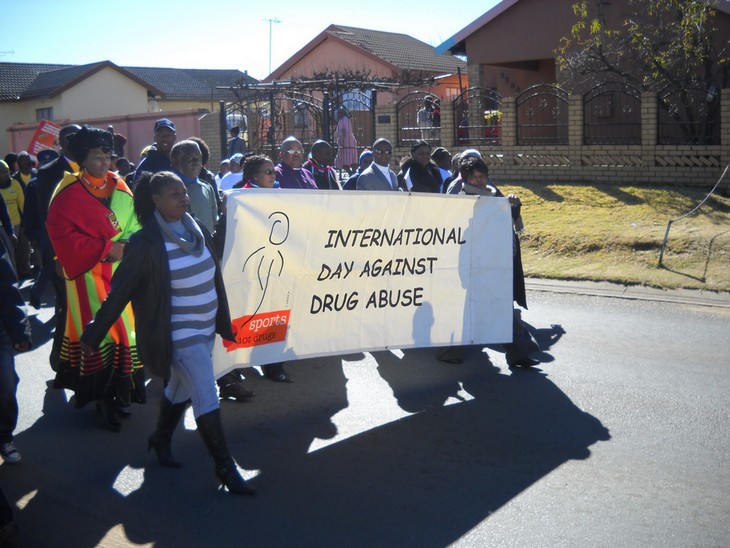
The Covid-19 pandemic has illuminated unprecedented worldwide attention on global health matters, probing advancement in the medical fraternity and improvements in inter-intra-personal hygiene. Advancement in globalisation has facilitated coordinated multi-sectorial responses and holistic approaches to emerging challenges that threaten health and wellbeing.
Days such as the International Day Against Drug Abuse and Illicit Trafficking commemorated on June 26 annually are important in putting into practice how unified global awareness action plays in our interconnectedness. It is marked as a day to share information on drug abuse, drug trafficking, life-preserving faculties and to expedite pressure towards healthy habits and safer stress-coping mechanisms.
Our livelihoods intersect and take positive actions against social ills in our society, particularly illicit use of drugs. Marking days such as this can promote healthier societies, eco-social transformations and safeguard the next generation and youth of today from harmful substances.
We all have a duty to take a firm position against falsehoods and unhealthy intake of substances and drugs, while focusing on sharing educational, informative and helpful information on medications to keep young people safe from substance use.
The theme for this year, “Addressing drug challenges in health and humanitarian crises”, aimed to reinforce activity and collaboration in accomplishing a world liberated from illicit drug use. It is set to reignite and act as a clarion call for communities to act before this phenomenon graduates to a global crisis. A collective approach towards drug intake education is more effective in reducing victims and reaching all corners of the society. Young people constitute 60% of the population and engaging them in
programming will be tantamount to increasing awareness and creating an informed citizenry.
Individuals can participate through joining campaigns on drug abuse, learning more about health hazards associated with drug abuse and preventative measures to tackle drug problems.
Drug-induced mental health cases doubled during lockdown, consequently deadening our socio-cultural fabric. According to Summit Care Trust about 10 000 new mental illness patients are in hospitals as a result of methamphetamine, also known as guka and broncleer.
- Chamisa under fire over US$120K donation
- Mavhunga puts DeMbare into Chibuku quarterfinals
- Pension funds bet on Cabora Bassa oilfields
- Councils defy govt fire tender directive
Keep Reading
Combined with an unstable economic environment it has become difficult for drug abusers and users to afford rehabilitation fees leading to several relapse cases and an upsurge in the prevalence of mental illnesses.
However, the government has stepped up efforts to create wards for drug-induced mental illness patients in clinics which have helped in the fight against illicit drug use.
Prescription cough syrup abuse is now more common and prevalent in high density areas. For instance, broncleer consumption has doubled with many locals referring to it as “the big industry” due to the quantities consumed on a daily basis. Sadly, sanitary pads and infant diapers are now used as intoxicants.
The United Nations, through the Office of Drugs and Crime, is inviting youth and the community to step up the battle against drug abuse through the following: Know the situation on the ground; share data from confirmed sources; join community activities on drug free society; and support campaigns on ending drug and substance abuse. Get connected by sharing the right facts on drugs and substance use.
Collaboration between civil society organisations, faith-based organisations and community services aimed at behavioural counselling and psychosocial support are pivotal in up scaling the fight against drug abuse and addressing mental related problems such as stress, depression and suicidal thoughts.
Lovemore Nyawo The Anglican Youth Association (AYA ), a faith-based organisation based in Harare, focused on empowerment of young Christians through eco-social and spiritual programming, has been active in fighting drug abuse through hosting seminars and online talks on drugs and substance abuse and partnering civil society organisations working in mental health and wellbeing thematic areas.
To win the war on illicit drug use all stakeholders must join hands. This can improve community response, prevention and coping mechanisms. Planning interactive sober social activities, intensification of drug awareness campaigns, rehabilitation and controlled medication intake can foster a healthy society.











